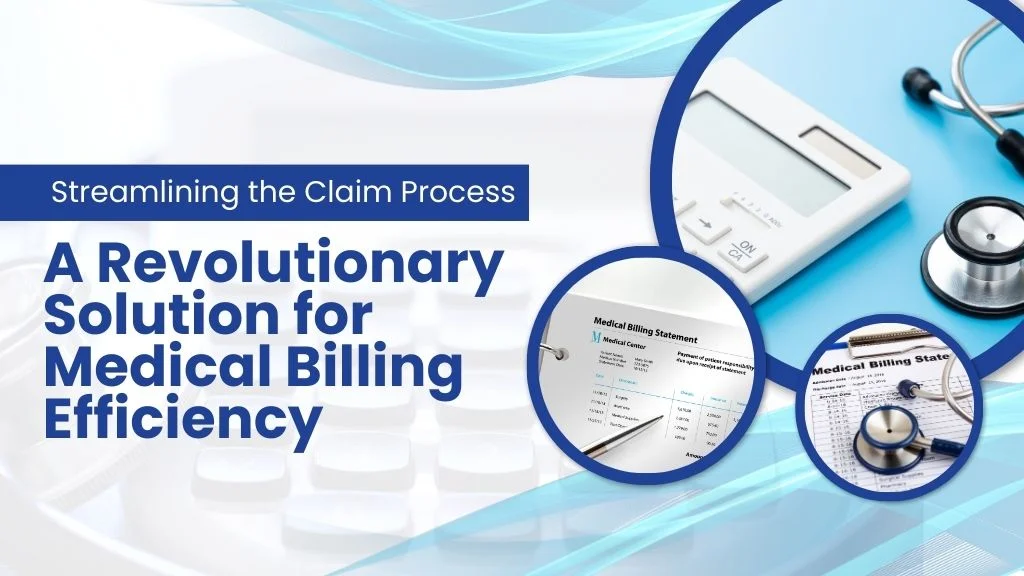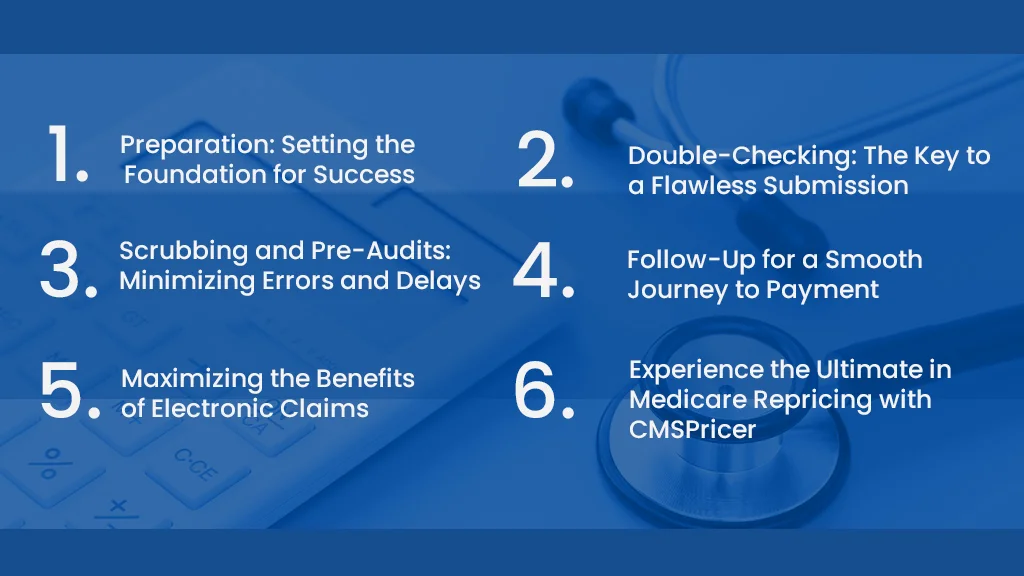Streamlining the Claim Process: A Revolutionary Solution for Medical Billing Efficiency
Efficient and accurate claim processing is crucial for the success of medical billing. With the passage of the Health Information Portability and Accountability Act (HIPAA) in 1996, electronic claims submission became the standard for the healthcare industry. Today, over 92% of healthcare providers in the United States use this method, recognizing its superior accuracy, efficiency, and speed compared to manual methods.

To fully reap the benefits of electronic claims, providers must follow best practices in the preparation, submission, and follow-up phases of the process. This includes verifying insurance coverage before appointments, ensuring accurate coding and clinical documentation, and meeting submission deadlines. It is also important to perform a final check before submission, comparing appointment schedules to insurance claims and including any required attachments.
After submission, a pre-audit or scrubbing process can help identify and correct errors before the claim enters the health plan’s system. Providers should also follow up on claims to track their progress and prevent payment delays. Utilizing a reliable Medicare repricing system, such as CMSPricer, can further improve efficiency with its frequent updates and accurate pricing.
With the convenience of web-based systems and advanced security measures, there is no need for paper contracts or salespeople. Providers can simply pre-pay for the service and take advantage of volume discounts, making the process even more efficient. In today’s digital age, streamlining medical billing is essential, and following these best practices can help providers achieve maximum efficiency and success.
Preparation: Setting the Foundation for Success
Before initiating the claim process, it is crucial for medical practices to verify a patient’s insurance coverage. Even the most accurate coding will be in vain if the service is not covered or the insurance has lapsed. Failure to fulfill a health plan’s prior authorization requirements can also result in claim denials, even if the patient is eligible for treatment. To avoid such setbacks, practices must stay updated on prior authorization requirements and ensure they are met before providing services.

Accurate clinical documentation is also essential for successful claims and maximum revenue. Additionally, ensuring accurate data entry during patient registration, especially for demographic and insurance information, is crucial to avoid costly claim denials. Meeting submission deadlines is equally important for timely payment.
Double-Checking: The Key to a Flawless Submission
The backbone of claims submission lies in accurate and specific coding, including CPT and ICD codes. With the current version being ICD-10, practices must also compare their appointment schedule to insurance claims to ensure all necessary documentation is submitted. Attachments are becoming increasingly crucial for certain procedures, and practices must proactively submit them to expedite the claims process.
Scrubbing and Pre-Audits: Minimizing Errors and Delays
After submission, additional steps are often required before receiving payment. To minimize errors and delays, many practice management vendors offer pre-audit or “scrubbing” services to identify and correct any errors before the claim enters the adjudication system. This not only speeds up the payment process but also allows practices to improve their procedures and prevent similar errors in the future.
Follow-Up for a Smooth Journey to Payment
Lack of communication between practices and insurers can lead to payment delays. By utilizing electronic claim status inquiries, practices can track their claims and ensure they have been received by the insurer. As a legal requirement, health plans must respond to these inquiries, giving practices peace of mind and the ability to track their claims throughout the process.
Maximizing the Benefits of Electronic Claims
The introduction of electronic claims has undoubtedly increased the efficiency of medical practices. To fully embrace this capability, healthcare providers must incorporate the above tips in all phases of the billing process. Additionally, opportunities for further improvement include the coordination of multiple claims and real-time adjudication.
Experience the Ultimate in Medicare Repricing with CMSPricer
As a market leader in SaaS-based Medicare repricing systems, CMSPricer is trusted by Medicare Payers, PPOs, TPA’s, BPO’s, Self-Funded Employers, and Auditing Firms. With 24/7/365 accessibility and top-notch security measures, including EV SSL Certificates and 2048-bit encryption, CMSPricer offers frequent engine updates to ensure accurate claims pricing. Say goodbye to outdated CMS policies and incomplete pricing results, CMSPricer prices all types of Institutional and Professional claims, including Referenced Based pricing. And with no contracts or salespeople, purchasing is easy with volume discounts and secure online payment processing.
In Summary
Electronic claims have greatly increased the efficiency of medical practices. To fully take advantage of this capability, it is important for healthcare providers to incorporate these tips throughout the entire billing process. This includes utilizing a reliable and secure system like CMSPricer, a SaaS-based Medicare repricing system, to ensure accurate Medicare repricing outcomes. With CMSPricer, users have access to frequent updates, advanced security measures, and a user-friendly interface. Say goodbye to contracts and salespeople – with CMSPricer, you can easily pre-pay with volume discounts and process payments online.
Join the revolution in medical billing and experience the benefits of efficient claim processing.
